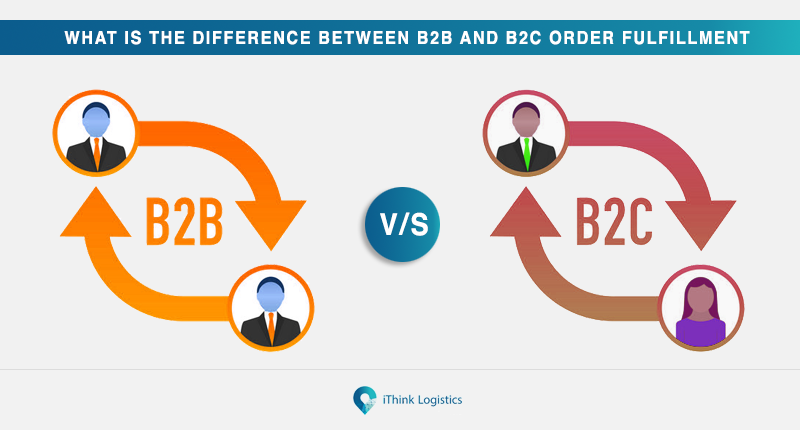In the world of sales, two prominent approaches have emerged: Inside Sales and Field Sales. These strategies play a crucial role in driving revenue and expanding business opportunities. In this article, we will explore the characteristics of inside sales and field sales, highlighting their similarities and differences, and ultimately helping you understand which approach may be more suitable for your business. So, let’s dive into the world of inside sales and field sales and explore the nuances of these two sales approaches.
Inside Sales:
Inside Sales refers to the process of selling products or services remotely, typically through phone calls, emails, or video conferences. Inside Sales representatives work from a centralized location, leveraging technology and communication tools to connect with potential customers. This approach has gained significant traction in recent years due to advancements in technology and the changing dynamics of the business landscape.
Field Sales:
Field Sales, on the other hand, involves sales representatives who engage with customers face-to-face, often traveling to meet them at their premises or designated locations. This approach allows for a more personal and interactive sales experience, as representatives can build relationships, understand customer needs, and provide tailored solutions on the spot.
Comparison between field sales & inside sales:
| Field Sales | Inside Sales |
|---|---|
| Requires far more emotional, intelligence, situational awareness, and planning | Requires persistence, research, and Back – End work |
| Requires far more emotional, intelligence, situational awareness, and planning | Transactional Engagement |
| Include meetings with C – C-level executives | Solution and relationship-based |
| Requires far more emotional, intelligence, situational awareness and planning | The focus is on opening opportunities |
| The product is more complex and expensive | The product is not so complex and sophisticated |
Difference between Inside Sales And Field Sales:
Inside Sales and Field Sales are two distinct approaches to sales that differ in terms of location and customer interaction. Inside Sales is the method of remotely selling products or services, usually through phone calls, emails, or online platforms. It involves building relationships with customers and closing deals without physically meeting them. On the other hand, Field Sales involves face-to-face interactions with customers, often requiring sales representatives to travel to meet clients in person. This approach allows for more personalized interactions and the opportunity to showcase products or services directly. In summary, Inside Sales focuses on remote selling, while Field Sales emphasizes in-person interactions and demonstrations.
Certifications and Qualities are needed for Inside sales:
To excel in the field of inside sales, certain qualities are essential. Effective communication skills are crucial as inside sales professionals need to engage with potential customers over the phone or through digital channels. Active listening and the ability to understand customer needs are also vital. Additionally, having a persuasive and confident demeanor helps in convincing prospects and closing deals. Adaptability and resilience are important qualities as well, as inside sales often involve handling rejection and overcoming challenges. Lastly, a positive attitude and a strong work ethic contribute to success in this dynamic and competitive field.
While formal education is not always a prerequisite for inside sales roles, certain certifications can enhance one’s credibility and marketability. The Sales and Marketing Certification (SMC) offered by the Sales and Marketing Executives International (SMEI) is a recognized qualification that covers various aspects of sales, including inside sales techniques. Another valuable certification is the Inside Sales Certification (ISC) provided by the American Association of Inside Sales Professionals (AA-ISP). This certification focuses specifically on inside sales strategies, best practices, and technology utilization. Additionally, courses on customer relationship management (CRM) systems and sales automation tools can provide practical knowledge to excel in inside sales.
Certifications and Qualities are needed for Field sales:
Qualities play a crucial role in the success of field sales professionals. To excel in this dynamic role, individuals need to possess excellent communication and interpersonal skills. A persuasive and confident demeanor, along with the ability to build and maintain relationships, is essential. Additionally, field salespeople should be self-motivated, adaptable, and possess a strong work ethic. These qualities enable them to navigate challenges, meet targets, and effectively represent their company’s products or services.
In terms of certifications and courses, there are several options that can enhance a field sales professional’s skill set. Courses in sales techniques, negotiation skills, and customer relationship management (CRM) can provide valuable insights and strategies. Certifications such as the Certified Sales Professional (CSP) or the Sales and Marketing Executive (SME) designation can also demonstrate a commitment to professional development and industry knowledge. These certifications validate expertise and can boost credibility in the field sales domain.
Rivalry between the field sales and inside sales:
The rivalry between field sales and inside sales has been a long-standing debate in the sales industry. Both approaches have their merits and drawbacks. Field sales teams argue that their in-person interactions allow for better relationship-building, trust-building, and a deeper understanding of customer needs. They believe that face-to-face meetings provide a personal touch that cannot be replicated remotely. On the other hand, inside sales teams argue that their approach is more efficient, cost-effective, and scalable. They emphasize the power of technology, virtual meetings, and data-driven insights to reach a larger customer base.
Case Study: SalesLink Solutions
One notable collision between field sales and inside sales occurred at SalesLink Solutions, a leading software company. The field sales team, with their extensive travel and in-person meetings, had been the backbone of the company’s sales strategy for years. However, the rise of remote work and the increasing demand for virtual solutions prompted the company to experiment with inside sales. Initially, the field sales team resisted the change, fearing that inside sales would undermine their relationships with clients. However, as the company implemented a hybrid approach, combining the strengths of both teams, they discovered that inside sales could complement field sales efforts. The inside sales team focused on lead generation, qualifying prospects, and conducting initial virtual meetings, while the field sales team took over in-person presentations and closing deals.
This case study demonstrates that rather than being rivals, field sales and inside sales can work together synergistically to achieve better results. By leveraging the strengths of each approach, companies can adapt to changing market dynamics and meet customer needs more effectively
What is better: field sales vs inside sales
| Field Sales | Inside Sales |
|---|---|
| Personalized Interactions: Field sales allow for direct, in-person interactions with potential customers. This personal touch can build trust, establish rapport, and create a lasting impression. | Cost-Effectiveness: Inside sales eliminate travel expenses, reducing overall costs for the organization. This approach allows companies to allocate resources more efficiently and reach a larger customer base. |
| Relationship Building: Meeting clients in person enables sales professionals to develop strong relationships. By understanding clients’ needs and preferences, they can tailor their approach and provide customized solutions. | Time Efficiency: Inside sales representatives can engage with multiple customers simultaneously, maximizing their productivity. This approach enables them to handle a higher volume of sales activities within a shorter timeframe. |
| Seekit.io in Field Sales: Seekit.io, a cutting-edge sales enablement platform, can enhance field sales effectiveness. With Seekit.io, sales representatives can access real-time customer data, track interactions, and collaborate with team members seamlessly. This technology empowers field sales professionals to stay organized, improve productivity, and deliver exceptional customer experiences | Seekit.io in Inside Sales: Seekit.io can also enhance inside sales operations. By leveraging Seekit.io’s features, inside sales representatives can access customer profiles, track communication history, and automate follow-ups. This technology streamlines the sales process, improves efficiency, and enables inside sales teams to deliver a consistent and personalized customer experience. |
Both field sales and inside sales have their unique advantages. Field sales excel in building personal relationships and providing hands-on experiences, while inside sales offer cost-effectiveness and scalability. Seekit.io can be a valuable tool in both approaches, empowering sales professionals to optimize their performance and deliver exceptional results. Ultimately, the choice between field sales and inside sales depends on the specific needs and goals of each organization.





